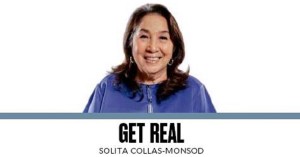For citizens wanting greater transparency and accountability from public officials, the statement of assets, liabilities and net worth (SALN) is an important, indeed crucial, tool to judge the honesty and integrity of any man or woman entrusted with taxpayer money.
Submitting a SALN yearly is a requirement of both the 1987 Constitution and the Code of Conduct and Ethical Standards for Public Officials and Employees. In filling out SALNs, public officials or employees declare their business and financial interests, including those of their spouse and unmarried children under 18 years old. The statement also includes a waiver authorizing the Ombudsman to secure documents from all government agencies that may show the official’s business interests and financial connections.
At the time it was first required shortly after the 1986 people power revolt, the SALN was seen as a valuable tool in extracting accountability from officials. Just a mere comparison of the net worth of an official from the time he or she began serving government would be enough to track his or her record of public service. A comparison of SALNs, it was believed, would be enough to show whether an official did (or did not) profit from government service. The SALN would also reveal: if the official was being honest, his or her ties to business interests or current or possible litigants, bidders or vested interests in areas where an official could be involved.
Still, as experience has shown, even the most meticulous examination of a SALN may not fully reveal the extent of the perfidy committed by an official or employee. It is easy enough to use a dummy who will lend his or her identity to disguise the true ownership of property or wealth. Such an official could also resort to using fake names, in the tradition of William Saunders, Jane Ryan or Jose Velarde, to deceive and dissemble. Or, the official in question could simply pass on the blame to underlings, who were obviously just following orders but would most likely spend their time in jail in place of their principals.
And yet, despite all the easy ways to evade accountability, the SALN has proven useful in determining the fitness of some officials. Most notably, falsehoods in his SALNs proved crucial in ousting the late chief justice Renato Corona during his impeachment trial, while failure to file SALNs during her stint as a professor at the UP College of Law led to the quo warranto case that resulted in the dismissal of another chief justice, Maria Lourdes Sereno. In the latter case, the gaps in Sereno’s SALN submissions, in fact, were made the crux of the issue of integrity against her.
Unfortunately, the justices of the country’s highest court seem to have learned the wrong lessons from what befell Corona and Sereno. After the ouster of Corona in 2012, the Court issued a decision “requiring individuals who request for the justices’ full SALNs to present a strong justification for it.” Instead of a full SALN, petitioners would be allowed access only to a “summary,” which provides scant information on the justices’ sources of wealth. Recently, reiterating that internal directive, the Court denied the request by a number of parties to the full SALNs, as well as the personal data sheets, of the justices.
Not to be outdone, the House of Representatives, led by Speaker Gloria Macapagal Arroyo, has also made a move to restrict public access to the SALNs of House members, including access by the media. If the magistrates can do it, after all, why not the legislators? The move, said a previous editorial in this paper, “virtually spits on the spirit and rationale of the law.”
For one, members of media requesting the SALNs of House members must submit proof under oath of media affiliation and certification of the accreditation of their media organization. Which in effect, it was noted, bars freelance journalists from getting the full SALNs. In addition, a request for access requires the payment of a fee of P300 for a copy of the document, meaning a total of P87,300 for all members of the House.
Clearly, a cloud of obfuscation and doubt now restricts not just public access to SALNs—which, it should be pointed out, are public documents—but also the entire effort to shine the light of truth on the behavior and financial records of government officials, and hold them to account for any deception or indiscretion they may commit. That the robed ones sitting in the high tribunal are in the forefront of this nefarious exercise is extremely disappointing, if not dispiriting.


